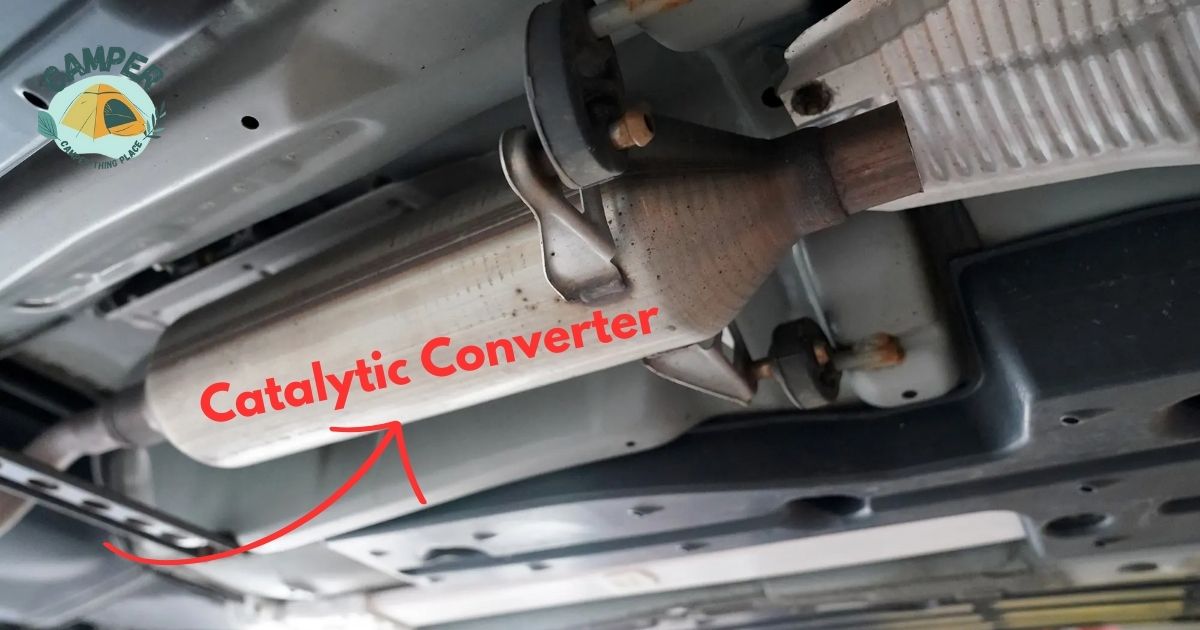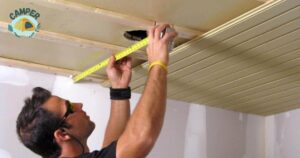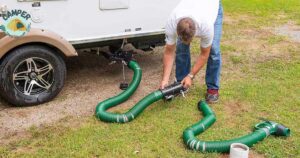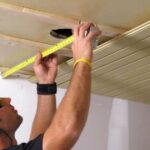The RV catalytic converter is a crucial emission control device in recreational vehicles. It efficiently reduces harmful pollutants in the exhaust gases, ensuring compliance with environmental standards
RV catalytic converter scrap prices refer to the monetary value assigned to these devices when recycled. So here some want to know the prices of scrapped RV catalytic converter. The market determines these prices based on the precious metals, such as platinum, palladium, and rhodium, found within the converters.
The current value of RV catalytic converter scrap ranges from $200 to $600 per unit, and some may even fetch as much as $1000. Their high value is attributed to the presence of precious metals like platinum, which play a crucial role in breaking down harmful chemicals during the conversion process.
Why Are Catalytic Converters Becoming So Expensive?
Determining the value of your RV before selling it for recycling is crucial to ensure you receive fair compensation. Locating a buyer for your catalytic converter can pose a challenge, as not many businesses directly purchase these parts from individuals at scrap prices.”
What Is A Catalytic Converter?
It is a vehicle emission control device that plays a crucial role in reducing harmful pollutants released from the exhaust system.
It contains a catalyst, often made of precious metals like platinum, palladium, and rhodium. It contributes to environmental protection and help vehicles comply with emission standards.
Why Are Catalytic Converters So Expensive?
They are relatively expensive due to the presence of precious metals within them. The main metals are platinum, palladium, and rhodium.
These metals act as catalysts, facilitating chemical reactions that convert harmful vehicle emissions into less harmful substances. The rarity and high demand for these precious metals contribute significantly to the overall cost of manufacturing catalytic converters.
Additionally, stringent environmental regulations necessitate the use of advanced technologies and materials in the production of catalytic converters, further adding to their expense.
The combination of precious metals and advanced manufacturing processes makes them vital for emission control. But it also contributes to their higher price.
Finding the Value of Your Catalytic Converter
Determining the value of your catalytic converter involves considering several factors. The primary determinants include the type of precious metals it contains, the current market prices for these metals, and the overall condition of the converter. To assess its value:
Identify the Type of Converter
Different vehicles use catalytic converters with varying compositions of precious metals. Knowing your converter’s type is crucial for accurate valuation.
Research Current Market Prices
Stay informed about the current market prices of precious metals like platinum, palladium, and rhodium. These prices fluctuate, impacting the overall value of your catalytic converter.
Check Local Scrap Yards or Buyers
Reach out to local scrap yards or specialized buyers who deal with catalytic converters. They can provide quotes based on the type of converter and current market rates.
Consider the Converter’s Condition
The overall condition of your catalytic converter, including any damage or wear, can affect its value. Well-maintained converters may fetch a higher price.
Get Multiple Quotes
To ensure you get a fair estimate, obtain quotes from multiple sources. This allows you to compare offers and choose the most favorable option.
Check Online Resources
Some online platforms provide tools or calculators to estimate the value of your catalytic converter based on its make, model, and condition. These can offer a ballpark figure.
The current market price for scrap catalytic converters stands at approximately $45 per pound. With an average converter weighing around 10 pounds, its estimated value is about $450, though certain converters may hold a higher market value.
Remember, its values can vary, and it’s essential to approach the valuation process with diligence and awareness of the current market conditions. Always be cautious and choose reputable buyers or recycling facilities for fair transactions.
Factors That Affect The Value Of Catalytic Converters
Here are we disused some factors that affect its value.
Metal Used In The Converter
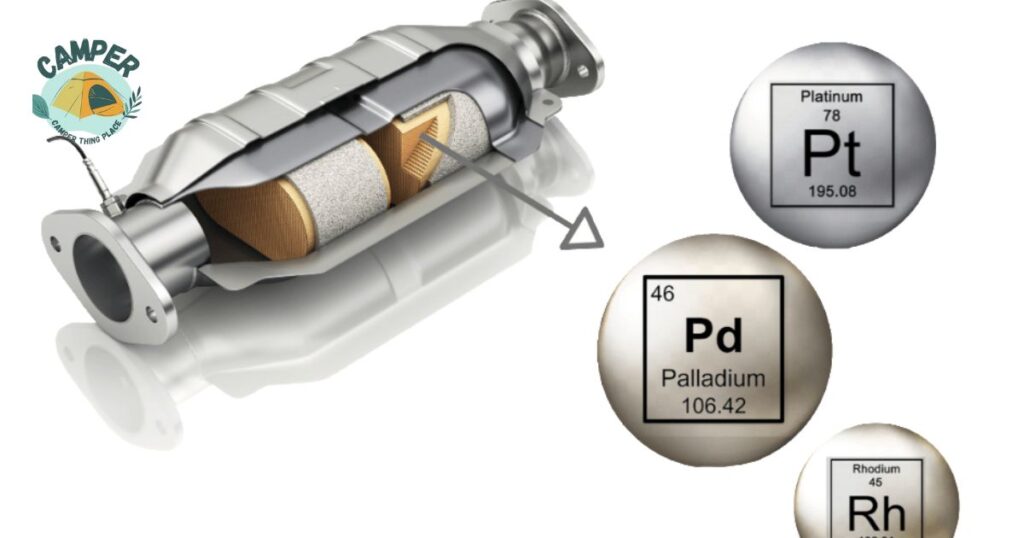
It contain a combination of precious metals that act as catalysts to facilitate chemical reactions within the exhaust system of vehicles. The three main types of precious metals used in catalytic converters are:
- Platinum (Pt): Platinum is a highly effective catalyst for converting harmful pollutants into less harmful substances. It is one of the primary metals found in it.
- Palladium (Pd): Palladium is another crucial catalyst that helps in the conversion of pollutants in the exhaust gases. It is often used alongside platinum in it.
- Rhodium (Rh): Rhodium is particularly effective at reducing nitrogen oxides in the exhaust. It complements the functions of platinum and palladium in the catalytic process.
These metals are applied as a thin coating on a ceramic or metallic substrate inside the catalytic converter. The combination of these precious metals and the specific design of the converter contribute to its efficiency in reducing harmful emissions from the vehicle’s exhaust.
Its value is closely tied to the current market prices of these precious metals, and the concentration of these metals within the converter determines its worth.
Are Bigger Catalytic Converters Worth More?
Its size is another crucial factor influencing its value. Typically, larger converters contain a greater amount of precious metals, making them more valuable.
This is because these precious metals, such as platinum, palladium, and rhodium, serve as catalysts within the converter. The concentration of these valuable metals in the converter is a key determinant of its overall worth.
It is important to note that the specific make, model, and manufacturing year of a vehicle can also impact the precious metal content in its catalytic converter, leading to variations in value.
For an accurate assessment, individuals looking to sell or evaluate catalytic converters often seek guidance from professionals familiar with the recycling and valuation of these components, taking into account current market prices for precious metals.
Location Of The Catalytic Converter
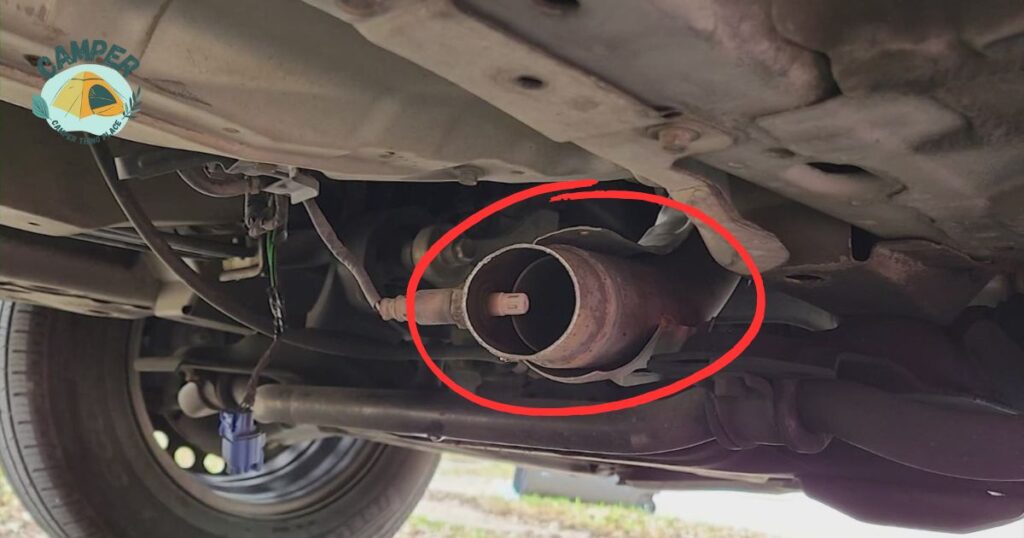
The position of a catalytic converter within a vehicle’s exhaust system is a significant factor in determining its value. They are typically situated either upstream, closer to the engine, or downstream, nearer to the tailpipe.
The converter’s location affects its exposure to temperature variations and environmental conditions. Those positioned closer to the engine may experience higher temperatures quickly, potentially enhancing their catalytic efficiency.
Type Of Vehicle The Converter
Its value depends on the type of vehicle it comes from. Luxury RVs nd newer models often have converters with higher concentrations of precious metals like platinum, palladium, and rhodium, making them more valuable.
Professionals assessing converter worth consider the specific details of the vehicle and current market dynamics, such as metal prices and demand.
Condition Of The Converter
Its value is significantly influenced by its condition, with well-maintained and undamaged converters being more valuable. Physical integrity, absence of dents or cracks.
The effectiveness of the internal catalyst material is also a key consideration. A converter in good condition contributes to optimal emission reduction performance.
Regular vehicle maintenance and care, including the exhaust system, positively impact the converter’s condition and, consequently, its resale or recycling value.
Providing accurate information about the converter’s condition is crucial for obtaining an accurate valuation.
How to Prevent Your Catalytic Converter From Being Stolen?
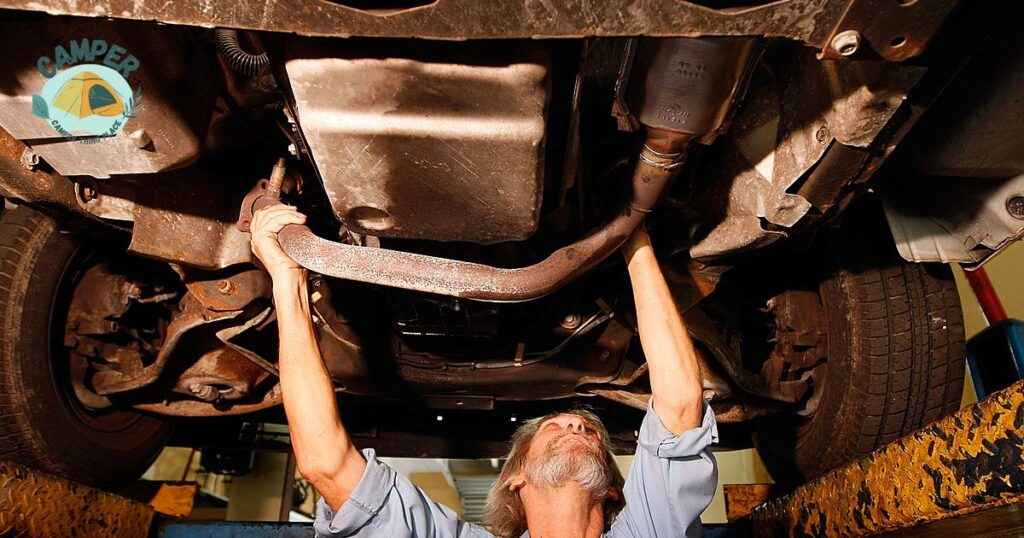
Protecting your catalytic converter from theft involves a few practical measures:
Park in Well-Lit Areas: Choose well-lit parking spaces. Thieves are less likely to target vehicles in areas where they can be easily seen.
Install Its Lock: Consider using a specialized lock designed for it. These devices make it harder for thieves to remove the converter quickly.
Security Camera Presence: Park your vehicle in places with surveillance cameras. The presence of cameras can deter thieves, and footage can aid in identifying culprits if theft occurs.
Engrave or Mark the Converter: Etch a unique mark or your vehicle’s identification number onto the catalytic converter. This can discourage thieves, as marked converters are harder to sell.
Park Strategically: If you have a high-clearance vehicle, park with the exhaust pipe close to a wall or another obstacle. This makes it more challenging for thieves to access the converter.
Install a Cat Shield or Cage: Specialized protective shields or cages can be installed around the catalytic converter, making it more difficult for thieves to access.
Vehicle Alarms: Ensure your vehicle has a functioning alarm system. A loud alarm can attract attention and scare off potential thieves.
Garage Parking: If possible, park your vehicle in a garage. This provides an added layer of security and makes it more difficult for thieves to target your catalytic converter.
Use Motion-Activated Lights: Install motion-activated lights around your parked vehicle. Sudden illumination can startle thieves and draw attention to their activities.
Stay Informed: Be aware of its theft trends in your area. Stay informed about local news and take extra precautions if there’s an increase in such incidents.
By combining these preventive measures, you can significantly reduce the risk of catalytic converter theft and help ensure the security of your vehicle.
What To Do If Your Catalytic Converter Is Stolen?
If your catalytic converter has been stolen, here are the steps to take:
Contact Law Enforcement
- Report the theft to your local police immediately.
- Provide them with all relevant details, including the time and location of the incident.
Inform Your Insurance Company
- Contact your auto insurance provider to report the theft.
- Provide the police report and any other requested documentation.
Document the Incident
- Take pictures of the crime scene and any damage caused during the theft.
- Document the vehicle’s identification number (VIN), license plate, and any unique markings on the catalytic converter.
Check Surveillance Footage
- If possible, check nearby surveillance cameras for footage that may help identify the thief or their vehicle.
Obtain a Police Report
- Ensure you obtain a copy of the police report. This will be essential for insurance claims and potential assistance from law enforcement.
Get a Replacement Catalytic Converter
- Contact your vehicle manufacturer or a reputable auto repair shop to obtain a replacement catalytic converter.
- Consider installing additional security measures, such as a catalytic converter lock or protective shield, to prevent future theft.
Notify Local Scrap Yards
- Inform local scrap yards or recycling centers about the theft and provide them with details about your stolen catalytic converter.
- They may assist in identifying the stolen part if it is brought to them.
Consider Security Upgrades
- Install security features like catalytic converter locks, shields, or alarms to deter future theft attempts.
Stay Informed
- Keep yourself informed about local trends in catalytic converter theft and take necessary precautions to prevent a recurrence.
Community Awareness
- Share information about the theft within your community to raise awareness and encourage vigilance among neighbors.
Remember, prevention is key. Taking proactive steps to secure your catalytic converter can help minimize the risk of theft. If theft does occur, prompt action and collaboration with law enforcement and insurance providers will aid in the recovery process.
How To Know If Your Catalytic Converter Is Broken?
If your car is acting up, and you’ve ruled out other problems, it could be a bad catalytic converter causing trouble. This can lead to issues like using more gas, less power, and a lit-up check engine light.
If you suspect a bad converter, take your car to a mechanic to check it out. If they confirm the problem, they might suggest replacing it.
If you’re thinking of doing it yourself, make sure to get the right converter for your car model. Be careful when putting in the new one, follow the instructions closely to avoid damaging anything.
After changing it, reset your car’s computer to make sure everything is set correctly. Changing a catalytic converter might seem tough, but with some know-how and the right tools, you can do it and get your car back on track.
Frequently Asked Questions
How much does a catalytic converter cost for an RV?
The cost of a catalytic converter for an RV can range from $200 to $2,000, depending on the type, brand, and specific model of the converter.
How much platinum is in a catalytic converter?
Catalytic converters typically contain about 3 to 7 grams of platinum, along with other precious metals such as palladium and rhodium.
Can you clean a catalytic converter?
Catalytic converters can be cleaned to some extent using specialized cleaners, but for severe issues, replacement is often necessary.
Where is the catalytic converter on an RV?
The location of the catalytic converter on an RV can vary, but it is typically installed in the exhaust system, closer to the engine, to reduce emissions.
How do I protect my RV catalytic converter?
Protect your RV catalytic converter by using security devices, parking in secure areas, and considering measures like alarms and engraving to deter theft.
Why is the catalytic converter stolen?
Catalytic converters are often stolen for their valuable metals, including platinum, palladium, and rhodium, which can be sold on the black market for a significant profit due to their high market value.
Final Thoughts
Being aware of RV catalytic converter scrap prices is crucial for RV owners. It empowers them to make well-informed choices when dealing with potential replacements or sales.
Monitoring market fluctuations allows for strategic decision-making, ensuring that RV owners can navigate the scrap market with confidence. Have you explored current scrap prices in your region? Staying informed about catalytic converter scrap prices ensures that individuals can adapt to changing circumstances, maximize value, and make financially sound choices.
Whether it’s for maintenance, upgrades, or parting ways with an old RV, understanding scrap prices contributes to a more informed and economically savvy RV ownership experience.

Jackson Ray, a seasoned blogger with a decade of experience, is the creative mind behind “camperthingsplace.com.” Explore his wealth of insights and passion for camping through engaging content on the website.
